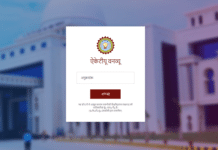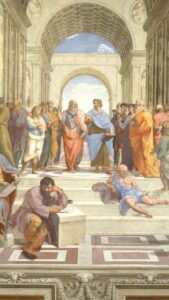Introduction:
Religion is the force that binds people together with fellow beings and man with god as well. It is the existence of the divine mind which is timeless and having control of the universe and maintains the moral relationships with mankind, as said by Martineau. But there are various problems in religions as well, starting from the conflicting discourses, diverse doctrines and plethora of ontological commitments, with this, we have another issue, that is of the different means, methodology and nature of understanding which is present in diverse religious contexts throughout the world, it is the epistemological problem. These issues are called as the “problem of conflicting truth value of religious claims”. In this article, we will try to understand this diversity and how it has been solved by John Hick.

Main Explanation:
The philosophical response to the problem of religious diversity has been the solution provided by the idea of “Exclusivism” in which they contend that it is a natural corollary to the revelation aspect of the religion in which it is meant that the things or knowledge that has been revealed by the voice of the lord himself and that has been recorded in the religious booklets of that particular religion stands to be true and valid. If there is any opposing idea stemming from other religious doctrine, it is false; if there is divergent view spouting from other religious sects, it is plainly invalid and only the religious verbatim of their religion is true. They came up with yet another remedial solution to this diversification, by providing the idea of “Inclusivism” here, they show that, not only ours but other religions have partial access to the truth and in this idea, they do not necessarily falsify other religion, but they could still assert emphatically that, only their religion is exclusively having full access towards the truth and only their religion has full access and only their path to salvation is true. This is a very prevalent idea that a human being is a social animal who wants to do everything in his pace to achieve all his selfish desires and personal needs; in order to control this animalistic desire of a human being, we have installed the concept of god in the place to regulate things in this regard. John Hick stands in non-affirmative of this motion.
In order to iron out the marked difficulties in religion, and because both the ideas of exclusivism and inclusivism have turned out to be problematic and unattractive as options. John Hick asserts the idea of “Religious Pluralism”. We must remember one thing that religious pluralism is not another synonym for the principle of religious relativism. It is the idea that says: all the ideas of different world religions are true and of value. All world religions are equal in the matter of creating great saints and it is valid. The path of tracing the trajectory of his step in creating such a major theory could be fairly summarized as: “The epistemological ideas in Faith and Knowledge such as “experiencing-as” and “religious interpretation” become the foundation for his pluralistic hypothesis, which he develops most fully in An Interpretation of Religion, based on his 1986-87 Gifford Lectures.”. This forms the basic foundation stone for his magnum opus book called as An Interpretation of religion- a book that provided the most ravishing solution for the problem of transcategorical god and religious experience.
Conclusion:
“For within each tradition we regard as real the object of our worship or contemplation. If, as I have already argued, it is also proper to regard as real the objects of worship or contemplation within the other traditions, we are led to postulate the Real an sich as the presupposition of the veridical character of this range of forms of religious experience. Without this postulate we should be left with a plurality of personae and impersonae each of which is claimed to be the Ultimate, but no one of which alone can be.” ~ John Hick




















